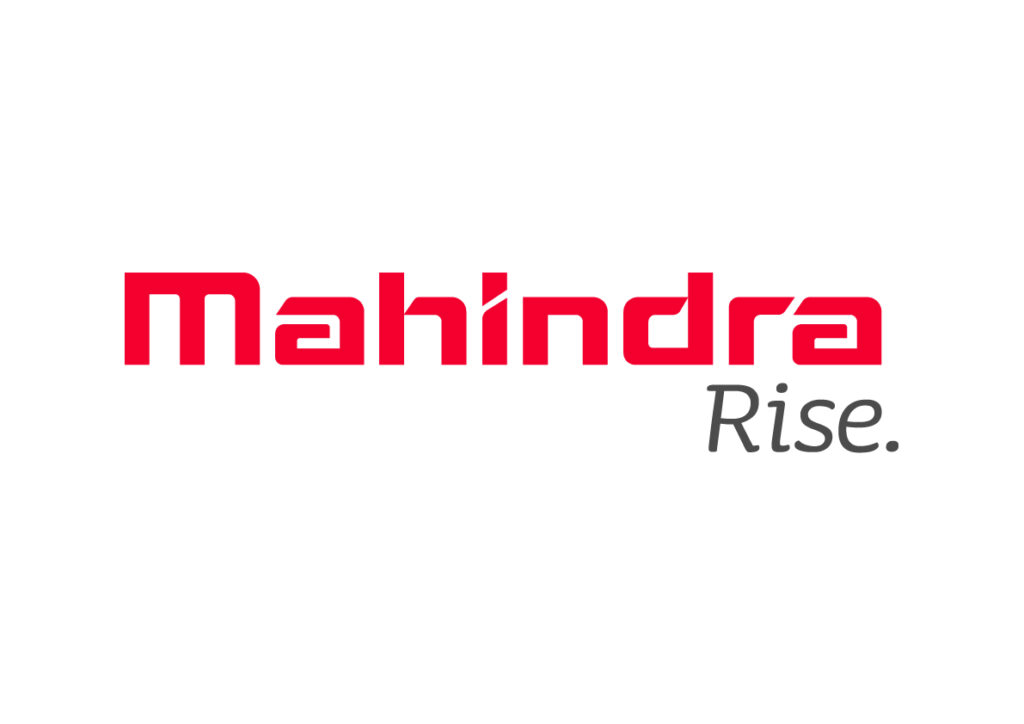In the bustling marketplace where businesses are craving the attention and loyalty of consumers, corporate advertising emerges as a pivotal strategy, weaving a narrative that transcends mere product promotion. Corporate advertising, often seen as a distant cousin to product advertising, is a fascinating world where companies communicate not just to sell their products, but to put their brand image, convey their values, and sometimes, even to sway public opinion. From the heartwarming TV commercials that connects us at our emotional strings to the bold print ads that make a statement, corporate advertising wears many hats, each with its own tale to tell. Let’s dive into this world and understand more about it.
What is Corporate Advertising?
Corporate advertising refers to the strategic communication efforts initiated by a business to establish, enhance, or maintain its identity in the minds of its target audience, stakeholders, and the general public. Unlike product advertising, which focuses on promoting specific products or services, corporate advertising aims to build the company’s image, enhance its reputation, and communicate its values and mission.
Types of Corporate Advertising

1. Image Advertising
Image advertising is focused on building, enhancing, or rehabilitating the overall image of a corporation. It doesn’t directly sell a product or service but aims to shape the perception and identity of the company in the public eye.
2. Advocacy Advertising
Advocacy advertising is utilized by companies to express their stance on social, political, or environmental issues. It is a way for corporations to showcase their commitment to certain causes and to align their brand with specific values.
3. Investor Relations Advertising
Investor relations advertising aims to attract and retain investors by highlighting the financial stability, growth, and profitability of the corporation. It seeks to project the company as a lucrative investment opportunity.
4. Recruitment Advertising
Recruitment advertising is focused on attracting top talent to the organization. It seeks to portray the company as an ideal employer and highlights its culture, benefits, and opportunities.
5. Cause-Related Advertising
Cause-related advertising involves campaigns that align the company with a social cause, demonstrating its commitment to corporate social responsibility (CSR) and ethical practices.
6. Crisis Management Advertising
Crisis management advertising comes into play when a company faces a scandal, controversy, or any situation that jeopardizes its reputation. This type of advertising aims to manage the crisis by communicating with stakeholders and taking responsibility, providing explanations, or debunking false claims.
Importance of Corporate Advertising

Corporate advertising, often transcending the mere promotion of products or services, plays a crucial role in shaping the overall image and reputation of a company. It is a strategic tool that communicates the ethos, values, and objectives of a corporation to its varied stakeholders, including customers, employees, investors, and the general public. Let’s dive into the multifaceted importance of corporate advertising.
Building and Enhancing Corporate Image:
Corporate advertising helps in crafting and maintaining a positive and strong image of the corporation in the public eye.
By consistently communicating its values, achievements, and initiatives, a company can sculpt how it is perceived by the masses. A robust corporate image can enhance credibility and foster trust among consumers and stakeholders.
Differentiation in the Market:
It aids in distinguishing the company from its competitors, not just on the product level but on an organizational level.
Through unique storytelling and presenting its unique selling propositions (USPs), a company can carve out a distinct niche and identity in the market, making it stand out amid the clutter.
Attracting Talent and Retention:
Corporate advertising can serve as a magnet to attract potential employees and retain existing talent.
By showcasing a healthy work culture, growth opportunities, and corporate values, companies can allure prospective employees and assure current ones that they are part of a commendable organization.
Strengthening Investor Confidence:
It plays a pivotal role in showcasing the company’s stability, growth, and profitability to current and potential investors.
By transparently communicating financial achievements, innovations, and future prospects, corporate advertising can fortify investor relations and attract further investments.
Managing Crisis and Protecting Reputation:
In times of crisis, corporate advertising can be instrumental in managing perceptions and safeguarding reputation.
Strategic communication during crises, expressing accountability, and outlining rectification steps can mitigate damage to the company’s image and assure stakeholders of its responsibility and reliability.
Advocating Corporate Values and Stances:
It allows a company to communicate its stance on various social, environmental, and political issues.
By aligning with specific causes or advocating particular views, a company can resonate with like-minded consumers and stakeholders, thereby building a community of advocates and loyalists.
Enhancing Brand Recall:
Corporate advertising aids in maintaining top-of-mind awareness among consumers and stakeholders.
Regular communication through various media channels ensures that the company’s name remains fresh in the minds of the audience, enhancing recall and preference during decision-making processes.
Global Positioning:
For multinational corporations, corporate advertising assists in establishing and maintaining a consistent global image.
By communicating universal values and messages, companies can ensure that their image remains coherent and consistent across different geographical markets.
Advantages of Corporate Advertising

Corporate Advertising which encompasses a broad spectrum of advertising efforts aimed at enhancing a company’s image and reputation, offers a plateau of advantages that extend beyond mere product promotion. Here’s a detailed look at some of the key benefits:
- Corporate advertising helps in sculpting and maintaining a positive and robust brand image. By consistently communicating its values, mission, and ethos through various media channels, a company can shape public perception and establish itself as a trustworthy and reliable entity.
- It aids in building and nurturing relationships with various stakeholders. Through targeted corporate advertising, businesses can communicate directly with different stakeholders, including investors, customers, and employees, thereby fostering a sense of belonging and loyalty towards the company.
- Corporate advertising can provide a distinct competitive advantage. By effectively communicating its unique values, initiatives, and achievements, a company can distinguish itself from competitors and occupy a unique space in the minds of the consumers.
- It serves as a vital tool in managing crises and protecting reputation. In times of crisis or controversy, corporate advertising can be utilized to communicate the company’s stance, actions, and apologies, thereby mitigating damage to its reputation.
- Corporate advertising is pivotal in attracting and retaining top-tier talent. By showcasing its culture, achievements, and values, a company can appeal to potential employees, positioning itself as an attractive and desirable place to work.
- It enables companies to showcase their commitment to social causes and responsibilities. Through cause-related advertising, businesses can highlight their CSR initiatives and advocacy, thereby connecting with like-minded consumers and enhancing their social image.
- Corporate advertising aids in establishing and maintaining a global presence. By crafting campaigns that resonate on a global scale, companies can ensure that their brand is recognized and respected internationally, thereby expanding their reach and influence.
- It plays a crucial role in building and maintaining investor confidence. By transparently communicating its achievements, strategies, and financial health, a company can assure investors of its stability and growth potential, thereby attracting investment.
- Corporate advertising can significantly impact customer loyalty. By consistently communicating its values and building a robust brand image, a company can foster a deeper emotional connection with its customers, thereby enhancing loyalty.
- It assists in establishing and reinforcing market positioning. Through strategic corporate advertising, a company can reinforce its position in the market, ensuring that it is perceived in a manner that aligns with its strategic objectives.
Corporate Advertising Examples
Corporate advertising in India has witnessed a remarkable evolution, with brands leveraging unique narratives to establish a connection with the audience. Here’s a deeper dive into some notable Indian corporate advertising campaigns:
Tata Group – “Leadership with Trust”
- Tata Group, one of India’s largest conglomerates, has consistently used corporate advertising to communicate its values and legacy.
- The “Leadership with Trust” campaign emphasizes Tata’s commitment to India’s development and its adherence to ethical and sustainable business practices.
- The campaign successfully reinforced Tata’s image as a trustworthy and socially responsible brand.
Mahindra Group – “Rise”
- The Mahindra Group, with a presence in over 100 countries, has utilized corporate advertising to communicate its philosophy and drive.
- The “Rise” campaign focuses on the brand’s determination to drive positive change in the lives of its customers and communities across the globe.
- By showcasing its efforts in innovation, sustainability, and technology, Mahindra has successfully positioned itself as a brand that empowers people to rise.

ICICI Bank – “Khayaal Aapka”
- ICICI Bank, a leading private sector bank in India, has used corporate advertising to communicate its customer-centric approach.
- The “Khayaal Aapka” (We Care for You) campaign was designed to convey the bank’s commitment to prioritizing customers’ needs and aspirations.
- The campaign helped ICICI Bank to establish a warm, customer-friendly image, emphasizing its dedication to customer service and satisfaction.
HDFC Bank – “We Understand Your World”
- HDFC Bank, one of India’s leading banks, has consistently focused on a customer-centric approach in its services.
- The “We Understand Your World” campaign aimed to communicate HDFC’s understanding of customer needs and its commitment to providing tailored banking solutions.
- The campaign resonated with customers, reinforcing HDFC’s image as a bank that understands and caters to the diverse needs of its clients.
FAQs
What is an example of corporate advertising?
Apple’s “Think Different” campaign is a classic example of corporate advertising, emphasizing innovation and creativity without promoting a specific product.
What is advertising and corporate advertising?
Advertising is a communication form promoting products or services, while corporate advertising aims to enhance the overall image and brand perception of a company.
What are the different types of corporate advertising?
Corporate advertising includes image advertising, advocacy advertising, investor relations advertising, recruitment advertising, and cause-related advertising, each serving different strategic purposes.
What is the importance of corporate advertising?
Corporate advertising is vital for shaping a company’s image, communicating its values, and establishing a positive reputation among consumers, investors, and other stakeholders.
What is also called corporate advertising?
Corporate advertising is also referred to as institutional advertising, as it aims to build the institution’s image rather than promote individual products or services.
What is corporate advertising also known as?
Corporate advertising is also known as institutional advertising, focusing on promoting the company’s values, mission, and image rather than specific products.
How does corporate advertising work?
Corporate advertising works by communicating messages that shape perceptions and attitudes towards the company as a whole, enhancing its brand image and reputation among various stakeholders.
What is the difference between product advertising and corporate advertising?
Product advertising focuses on promoting specific goods or services, while corporate advertising aims to enhance the overall image and reputation of the company itself.






Kudos on the blog! The depth of understanding displayed in defining corporate advertising and showcasing diverse examples is commendable.
thank you!